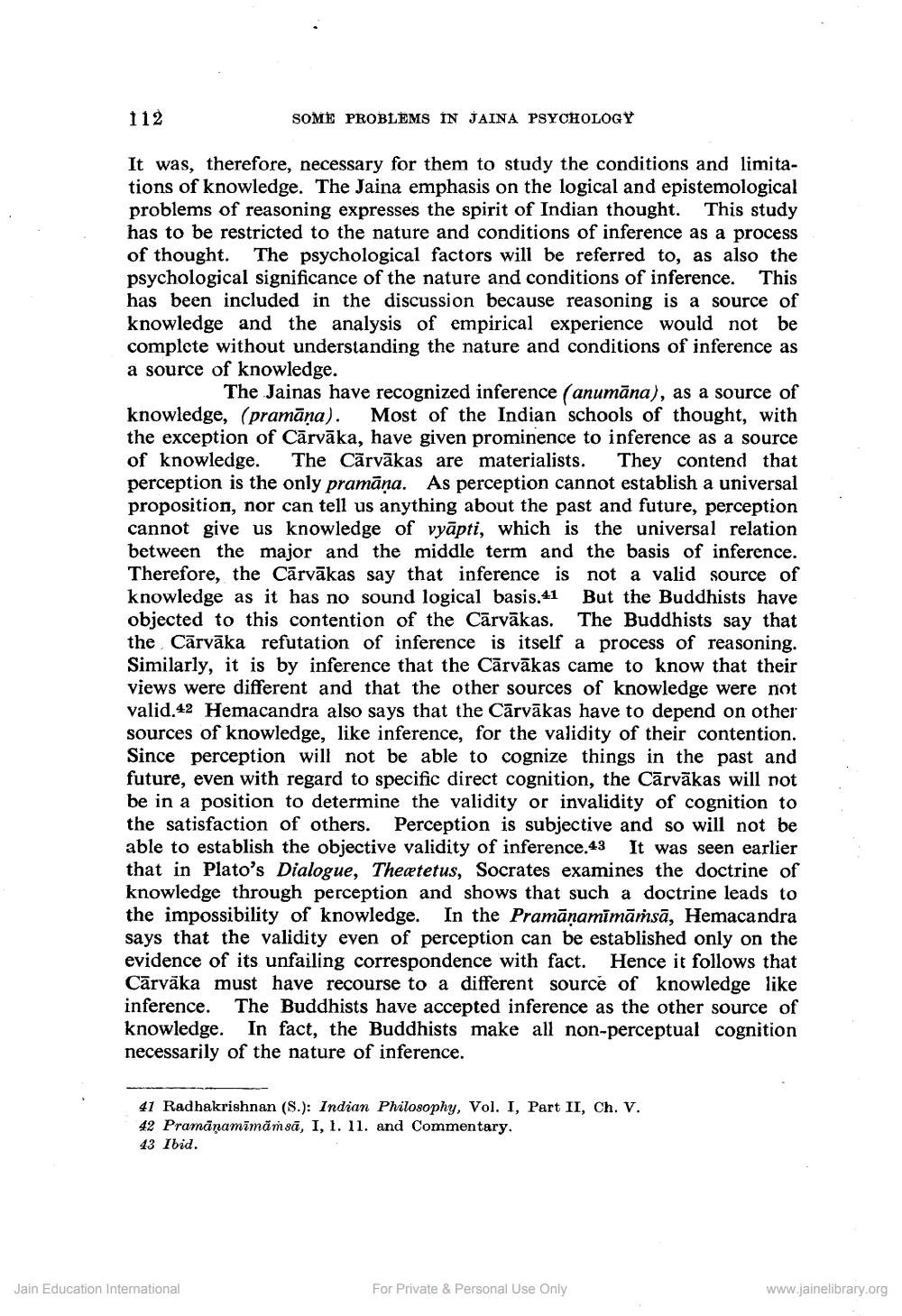________________
112
SOME PROBLEMS ÎN JAINA PSYCHOLOGY
It was, therefore, necessary for them to study the conditions and limitations of knowledge. The Jaina emphasis on the logical and epistemological problems of reasoning expresses the spirit of Indian thought. This study has to be restricted to the nature and conditions of inference as a process of thought. The psychological factors will be referred to, as also the psychological significance of the nature and conditions of inference. This has been included in the discussion because reasoning is a source of knowledge and the analysis of empirical experience would not be complete without understanding the nature and conditions of inference as a source of knowledge.
The Jainas have recognized inference (anumāna), as a source of knowledge, (pramāņa). Most of the Indian schools of thought, with the exception of Cārvāka, have given prominence to inference as a source of knowledge. The Cārvākas are materialists. They contend that perception is the only pramāņa. As perception cannot establish a universal proposition, nor can tell us anything about the past and future, perception cannot give us knowledge of vyāpti, which is the universal relation between the major and the middle term and the basis of inference. Therefore, the Cārvākas say that inference is not a valid source of knowledge as it has no sound logical basis.41 But the Buddhists have objected to this contention of the Cārvākas. The Buddhists say that the Cārvāka refutation of inference is itself a process of reasoning. Similarly, it is by inference that the Cārvākas came to know that their views were different and that the other sources of knowledge were not valid.42 Hemacandra also says that the Cārvākas have to depend on other sources of knowledge, like inference, for the validity of their contention. Since perception will not be able to cognize things in the past and future, even with regard to specific direct cognition, the Cārvākas will not be in a position to determine the validity or invalidity of cognition to the satisfaction of others. Perception is subjective and so will not be able to establish the objective validity of inference.43 It was seen earlier that in Plato's Dialogue, Theætetus, Socrates examines the doctrine of knowledge through perception and shows that such a doctrine leads to the impossibility of knowledge. In the Pramāņamīmāṁsā, Hemacandra says that the validity even of perception can be established only on the evidence of its unfailing correspondence with fact. Hence it follows that Cārvāka must have recourse to a different source of knowledge like inference. The Buddhists have accepted inference as the other source of knowledge. In fact, the Buddhists make all non-perceptual cognition necessarily of the nature of inference.
41 Radhakrishnan (S.): Indian Philosophy, Vol. I, Part II, Ch. V. 42 Pramānamīmāṁsā, I, 1. ll. and Commentary. 43 Ibid.
Jain Education International
For Private & Personal Use Only
www.jainelibrary.org




